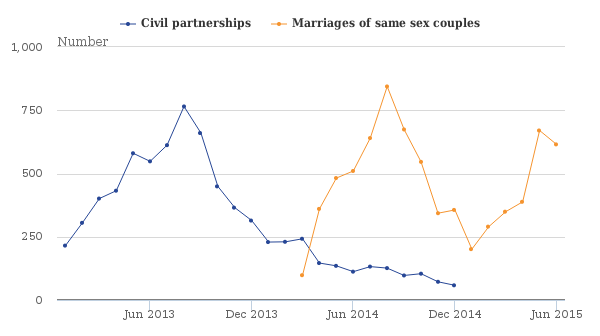I’ve been on a personal journey. My best analogy is that it feels a little like the 7am train from York to London King’s Cross: whilst it’s a personal journey, it’s absolutely being shared by a lot of other people. I’ve also realised that I’ve reacted to the result of the EU referendum in a very predictable way. In fact, it makes me kick myself for being so human. In reality, I’m now relieved that I understand what has happened in my own head the last week or so. I was beginning to think that it wasn’t going to end well.
I’ve “Googled” the change cycle. It neatly sums up the process that I, and many others, have gone through. When change occurs, emotions of loss and anger result initially, followed by discomfort that transforms into discovery and understanding. Lastly, it results in integration.

But, I’ve got a confession to make. I started, in my stage 1 shock and loss, by blaming people. In my stage 2 anger, I blamed all Brexiteers. I blamed them and I called them names. I was so wrapped up in my own feelings about the outcome that I failed to recognise that other people have feelings and views, and quite importantly, are entitled to them.
I’ve taken a step back. I’ve realised that my emotion got in the way of my rational objectivity. Did I seriously just challenge the right to vote of another person because they disagree with me? It happened. I’m on the same level as others who challenge human rights, and I consider myself to be a human rights activist. Thankfully, most of it was in my head, and apart from a ruined evening out with my partner, no harm done. I’ve promised to make it up to her, albeit again, currently only in my head.
How does one reconcile this thinking with the person I aspire to be in society? I had to think hard to avoid putting myself in a position where my opinions and arguments had the very effect I ordinarily campaign against. I now realise the errors in my earlier thought: I cannot be angry at a person for exercising their right to vote.
I don’t have to be happy about the overall decision, and I can campaign against it if I want to, just as Nigel Farage would have done if the result had been the other way around. I signed the second EU referendum petition as a kneejerk reaction, but I doubt that this would in reality be positive (asking the same broad question might allow some to express a change of mind, but fundamentally, is unlikely to get us anywhere further as the losing voters, whoever they would be, would still remain unhappy and unsatisfied). Nevertheless, the point is that it’s the decision I’m unhappy about, not the people, and I think back: was I prioritising my rights over other people’s rights on arbitrary grounds (my own opposite view)?
I don’t think we’ll end up leaving our European connections behind entirely. There’s too much uncertainty and chaos already. But, what I do think we need to do is work together in the UK and find the commonality between the opposing sides. Both sides had a right to vote, yes? Both sides have a right to express (legitimate) opinions on it, yes? (Non-legitimate opinions include those based on racism and those based on how intelligent the voters are, as examples). Both sides should respect human rights. Both sides should challenge racism.
Okay, says the reader, that’s all a bit obvious, isn’t it? Well, yes, but perhaps a less obvious important common theme is that both sides wanted the best for the UK, they just differ on what it is when asked a very broad and all encompassing question.
Did people voting know what they were voting for? Arguments based on whether you knew what you were voting for apply to both sides. Many people do not understand what the EU is and what it does. Many have an idea, but the real explanation is that people voted one way or the other for hundreds of different reasons, some of them not even directly related to the question being posed. Why should they, because even well informed people have very different views on the EU, its scope and effectiveness, and whether UK membership in it is positive or negative. See the Tory leadership, for example.
There’s a warm feeling brewing though. People are standing up against the real evils of society. No matter which way you voted, you find people standing up against racism and fascism. In the end though, whilst the referendum was advisory, what it has shown is how divided the country is on the issue. It was a blunt tool to try decide a complex question. There a thousands of issues arising out of the result. What is needed now is a rational discussion on the future of our UK that brings us closer together. Yes, indeed, a compromise between the (apparently) polarised positions and a conversation that seeks a better situation for all of us, politically, economically and socially. That might mean me conceding that we should not be a full member of the EU in the long run, if others concede that we should have some sort of relationship with the EU, guaranteeing things like freedom of movement.
What I realised though is that it’s easy to lose sight of your values when something big like this happens. I’m hoping that my reflection helps others in their own consideration of the matter and encourages people to not see in polarised “in” and “out” and “yes” and “no” and “right” and “wrong”. It is not, and never will be, that easy. But perhaps a question: what do we all now need to focus on together which would be the best for us all in the future?






